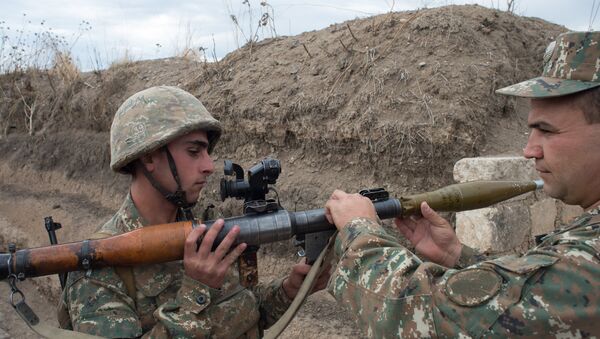BAKU (Sputnik) – The foreign minister added that recent statements of Armenian authorities gave no reason for optimism and indicated Armenian unwillingness to engage in constructive talks.
"The April escalation of the conflict was a vivid reminder that today’s situation existing on the line of contact of Armenia and Azerbaijani troops is dangerous and has a potential to worsen at any time with unpredictable consequences," Mammadyarov said at the 23rd Ministerial Council of the Organization for Security and Co-operation in Europe (OSCE) in Hamburg.
He pointed out that Azerbaijan was the most interested party in changing the current state of affairs.
"In this context, we assess the high-level substantive discussions in Vienna and St. Petersburg as positive steps in the right direction and we are thankful to the co-chair countries, particularly to the Russian president, Mr. Vladimir Putin, for all his efforts in this regard," Mammadyarov emphasized.
Azerbaijan's Armenian-dominated breakaway region of Nagorno-Karabakh proclaimed its independence in 1991. After the military conflict ended in 1994, Azerbaijan lost control over the region. Violence erupted in Nagorno-Karabakh on April 2, 2016 and led to multiple casualties. The parties to the conflict signed a Russian-brokered ceasefire on April 5, but mutual accusations have not stopped so far.
On May 16, Armenian President Serzh Sargsyan and his Azerbaijani counterpart Ilham Aliyev met in Vienna to discuss the conflict. The sides reiterated there could be no military solution to the conflict and reaffirmed their commitment to 1994 and 1995 peace agreements. The presidents also agreed to finalize the OSCE investigative mechanism as soon as possible to reduce the risk of further violence.
On June 20, the presidents of Armenia, Azerbaijan and Russia met in St. Petersburg where they reaffirmed their commitment to achieve steady progress in political settlement of the Nagorno-Karabakh conflict and agreed to increase the number of OSCE monitors working in the conflict zone.



